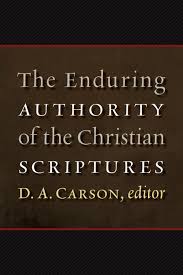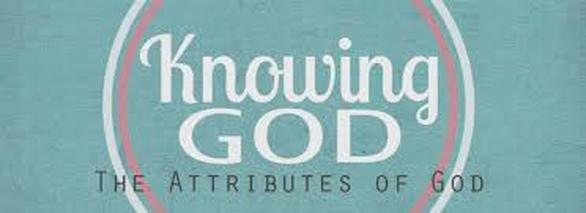|
As part of Brookside's plan to spend time daily reading through the Bible in 2016, the Institute is offering a series of seminars that will line up with what we're reading and dig deeply into certain topics. And as we've been reading through the first five books of the Old Testament, one of the remarks/questions I've heard repeatedly goes something like this: "What's up with all the violence in the Old Testament?!" I've gotten this question enough times to think that this will be a good topic to devote a seminar to! People who are antagonistic towards Christianity (and/or religion in general) often use some of the "violence passages" in the Old Testament as ammunition against religion. Famously, Richard Dawkins has said The God of the Old Testament is arguably the most unpleasant character in all fiction: jealous and proud of it; a petty, unjust, unforgiving control-freak; a vindictive, bloodthirsty ethnic cleanser; a misogynistic, homophobic, racist, infanticidal, genocidal, filicidal, pestilential, megalomaniacal, sadomasochistic, capriciously malevolent bully" (The God Delusion, p. 232). Even if you only understand half of those words, you know that Dawkins isn’t being complimentary. And from this language that Dawkins uses, we see that a large part of his critique is directed at how he understands the violence we read about in the Old Testament. Does the violence we read about in the Old Testament mean that God is a bloodthirsty ethnic cleanser? Is he sadomasochistic, and a divine bully? How should followers of Jesus Christ who maintain the authority of the Scriptures think about this violence that is obviously evident in the Old Testament? This coming Wednesday evening - on March 30, 2016 - the Brookside Institute will be offering a seminar that wrestles with this question and offers a way forward. Whether you're an attendee of Brookside Church or are simply in the Omaha area and want to dig into this in a gracious, respectful way, we invite you to join us. There's no cost to attend, but you can help us know how to plan by signing up here. Interested in other seminars that the Brookside Institute will be offering this year? Or do want to see some things we've already done that line up with what Brookside Church is doing as we read through the Bible? Click here to see more.
3 Comments
One of the (many) things that I love doing as a pastor is fielding some of the various theological questions I get. As someone who cares a lot about helping build and reinforce foundations of the Christian faith, and helping form people theologically, these sorts of interactions provide a fun - and important - opportunity.
Last week, a question about one part of the recent Young Messiah movie came through my inbox. I've not seen the movie myself and so I don't first-hand experience with the scene that was described (there's my disclaimer!). Nevertheless, let me paraphrase/summarize the question that came my way, and then include the way I responded. Here's the question I got: I understand that the Young Messiah is fictional, and that there's no scriptural support for much of Jesus' life before His public ministry. Nevertheless, I have a question about one of the scenes. The movie portrays Jesus as unaware (or at least unsure) of his divinity when he's young - about age 7. In fact, the climactic moment of the movie portrays Mary telling Jesus the story of his conception and birth after having withheld the information for his own protection up to that point. A few questions came to mind after watching that scene. How could Jesus have ever been unaware of his deity if he was "wholly God?" On the other hand, how could he have possessed such sophisticated self-awareness from birth if he was "wholly human?" One movie is not a big deal but I am curious as to whether there is a reliable answer to this question? Here's my response (in a very-slightly-edited form): I'm a fan of Jerry Bridges. I've been benefiting from his books for years, and have repeatedly recommended (and returned to!) such books as his The Pursuit of Holiness, The Practice of Godliness, Transforming Grace: Living Confidently in God's Unfailing Love, The Discipline of Grace: God's Role and Our Role in the Pursuit of Holiness, The Joy of Fearing God, Respectable Sins: Confronting the Sins We Tolerate, The Bookends of the Christian Life, and more. Just this morning over a breakfast with some other guys, we were talking about how we should never grow casual towards God's grace. Jerry Bridges' writings came to mind again then, as he helped me appreciate the "bigness" of God's grace in Jesus Christ, and how that grace should fuel my own pursuit of holiness and practice of the spiritual disciplines. And that is likely how I'll continue to remember Bridges - as one of my "author-mentors" who helps me never grow casual towards God's grace. Recently Jerry Bridges passed away at the age of 86, after serving for decades with the Navigators ministry. The grace that was the focus of so much of Bridges' writings has now become for Jerry the reality of God's glorifying grace, as Jerry lives on in the presence of our Lord. Jerry Bridges' life and his writings are another example of the truth that theology should never remain abstract. What we believe shapes who we are. To learn a bit more about Jerry Bridges click here. To view his Memorial Service held on March 11, 2016, click here. Or, read an excerpt from Jerry Bridges' own writings, in this article "4 Essentials for Finishing Well." If you liked this post, you may also be interested in
Let me begin this post with my conclusion: I'm trying to get more and more comfortable with the words "I don't know." I've been trying to get more comfortable with these words for a while, which is why I'm grateful for how Mitch Stokes helped me think about this a bit further in his recent article, "3 Beautiful Words: 'I Don't Know.'" Most of what follows is piggy-backing off thoughts I generated while reading and reflecting on Stokes' article.
As someone who loves to learn and read and study and teach, I used to see these words - "I don't know" - as a sign of defeat. When I didn't know something, I felt like I had been bested and needed to get off the field. Now, however, I'm learning to see the words "I don't know" as an opportunity. Specifically, I think "I don't know" can open up possibilities in at least three brief ways: Late last week, I was able to present at a Teacher In-Service for Cornerstone Christian School. The topic I was asked to teach on was "The Importance of the Christian Worldview." After studying for the talk and interacting with the teachers, I'm as convinced as ever that Christians need to understand what worldview is, why a Christian worldview is so important, and how we grow in our understanding (and embodiment!) of the Christian worldview.
This topic breathes purpose and perspective into how we think about the different "arenas" of our lives (e.g. jobs, entertainment, family, etc), and it prompts us to think well about God and His Word, the Bible. Keep reading to see the talk I gave (in a somewhat modified, abbreviated form) on Christian worldview. At the very end of this post, I've included an "answer key" version of the handout I made available to the teachers. Yes. Yes. And Yes! I Love What JT English Says about Making Theology Accessible in the Church3/8/2016 Recently JT English, Pastor of Training at the Village Church in Texas, sat down with Dan Darling of the Ethics and Religious Liberty Commission (ERLC) to talk about something I LOVE to champion: Making theology accessible in the local church. If you want to watch something that overlaps with A WHOLE LOT of what the Brookside Institute is about, take 7 min and watch the video. (Please!) Here are a few notes I was scrambling to type as I watched the video - these may pull you into watching, if you're still on the fence:
I'm totally gonna geek out on a copy of D.A. Carson's (ed) new book, The Enduring Authority of the Christian Scriptures, as soon as I can get my hands on it. (Which will be soon.) As the title indicates, the book talks about the authority of the Bible. (In fact, it talks A LOT about the authority of the Bible. The book is 1200+ pages.) And as part of that, the book upholds a nuanced-yet-firm belief in Scripture's inerrancy - that the Bible tells the truth (i.e., it is "not errant" / inerrant). As Carson says in an interview with The Gospel Coalition on the word inerrancy: Like so many other theological words, "[inerrancy] can serve as a useful one-word summary, even while it needs unpacking with care and with great attention to what Scripture says." This book helps us "unpack with care" and "give great attention to what Scripture says" regarding inerrancy and the closely-related topic of the Bible's authority. In the following 17 min video, Carson gives some reasons why the Bible's authority and inerrancy are of continuing importance. I encourage you to at least watch the first 8 minutes, where Carson addresses this most directly. The remaining 9 minutes or so are still worthwhile, but they get into the nuts and bolts of the book a bit more. One of the great questions to keep asking as we read through Scripture is this: What does this passage teach me about God? What do I learn about who God is? Or about what He does? These sorts of questions keep our perspective God-saturated, and can help us live in a way that honors and aligns with the God who reveals Himself. Recently I was reading through the first part of Deuteronomy, and realized there is a whole lot we learn about God in the span of just a few chapters. I started to underline some of the truths we discover about who God is as He reveals Himself in Deuteronomy, and below I've included eight of the things I underlined - verses straight from the NIV Bible I've been reading. Before I list these verses, a quick comment from J.I. Packer's classic book, Knowing God, will help us keep things pointed in the right direction: Our aim in studying the Godhead must be to know God himself better. Our concern must be to enlarge our acquaintance, not simply with the doctrine of God's attributes, but with the living God whose attributes they are. As he is the subject of our study, and our helper in it, so he must himself be the end of it. We must seek, in studying God, to be led by God. It was for this purpose that revelation [i.e., the Bible] was given, and it is to this use that we must put it" (J.I. Packer, Knowing God, p. 23). So now let's look at Deuteronomy 4-10, and ask "What does this passage teach me about God?" Here are at least eight things. (There's probably more I could have listed from these chapters, by the way!)
|
Tim WiebeChristian. Husband. Father. Pastor. Learner. Contributor. Reader. Categories
All
Archives
June 2024
|
© 2014-2024 | 11607 M Circle, Omaha NE, 68137 | www.thebrooksideinstitute.net








 RSS Feed
RSS Feed
